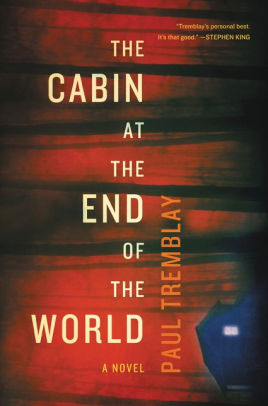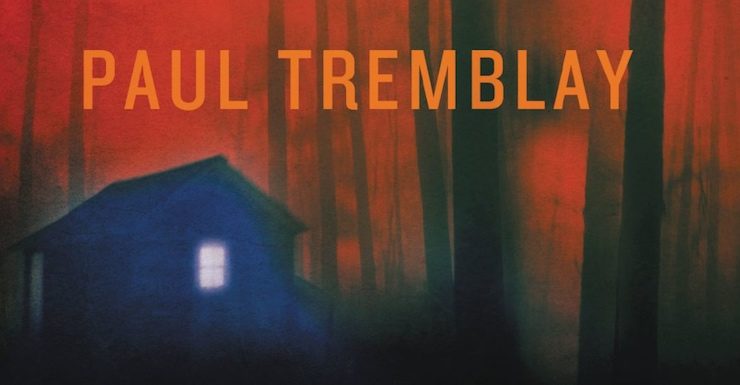Who doesn’t want to spend a summer vacation in a cabin, far removed from the outside world? Forget a mere vacation; how about every day free from breaking bad news, social media scream-fests, and stressful jobs?
Well, after reading Paul Tremblay’s latest page-turner, The Cabin at the End of the World, you might want to be careful what you wish for. As the besieged family at the center of this page-turner soon learns, isolation can make you more vulnerable than you’ve ever been and even your own loved ones might have no choice but to betray you.
But you should certainly read The Cabin at the End of the World anyway, because, though it may not be the lightest of reads, it’s one of the summer’s best.
Buy the Book


The Cabin at the End of the World
Tremblay continues to excel at a familiar horror set-up—demonic possession in his 2015 breakout novel A Head Full of Ghosts and a missing child in his follow-up, Disappearance at Devil’s Rock—twisted into a masterful new shape. The basic premise behind The Cabin at the End of the World is one of a home invasion gone sideways. Seven-year-old Wen and her adoptive parents, Eric and Andrew, have just settled into a log cabin on a New Hampshire lake when four strangers stroll up the driveway, brandishing medieval-looking weapons crafted from gardening tools. They force their way into the cabin and present their hostages with a choice: Andrew, Eric, and Wen must make a terrible sacrifice in order to prevent the apocalypse.
This is just the opening two chapters, so no major spoilers there. What follows is a series of dilemmas that leave readers guessing and breathless and desperate for answers until the very last page.
The ringleader of this cult (I’m using that term lightly because all four members were very recently strangers to one another until they were drawn together online) is a giant mountain of a man named Leonard, and, yes, one might be reminded of Lennie Small from Of Mice and Men, because there is a gentleness to him that makes Leonard all the more frightening. He always apologizes as he does something awful, like tying up Andrew and Eric or putting his Home Depot torture device to use. His fellow assailants are two women and one particularly hateful creep named—or not really named—Redmond. Are the strangers what they claim, ordinary people shown prophetic visions of floods and fires? Are they thrill killers? Are they even really strangers to Andrew and Eric? Are they really even four people?
To say much more will rob readers of experiencing an impossibly tense and meticulous thriller with a distinct uncanny edge. Faster in pace than Disappearance at Devil’s Rock and much more subtle than A Head Full of Ghosts, Tremblay has a real winner here. As he’s demonstrated in prior works, Tremblay may excel at revisionist horror, but his strongest suit is crafting believable, likable (for the most part) families to put through hell. Andrew plays the skeptic and harbors a rage that lingers in the aftermath of a previous crime he was a victim to while Eric, the more nervous parent, has a crisis of his own faith that colors his interaction with Leonard’s group. Wen is a particularly strong voice, as she questions her parents and sees them as fallible for the first time.
You will feel for this family.
You will feel dread most of all.
I was reminded of two recent horror movies, The Killing of a Sacred Deer and Hereditary, as, like the families at the center of those films, Andrew, Eric, and Wen wrestle with an evil presented to them as their inescapable destiny. The Cabin at the End of the World has a cinematic quality to its prose style, too; Tremblay’s deft hand directs the action towards an end that feels both inevitable, unexpected, and earned.
The Cabin at the End of the World is available from William Morrow.
Theresa DeLucci is a regular contributor to Tor.com covering TV and horror fiction. She’s also gotten enthusiastic about pop culture for BoingBoing, Wired.com’s Geek’s Guide to the Galaxy podcast, and Den of Geek. Follow her on Twitter.










